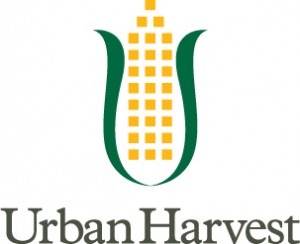Calendar
To support the national week of action on EPA’s science restriction rule, Earthjustice and UCS are partnering to host a skills-based webinar on public comments. In this online training, you will learn: how to write an effective public comment, what types of comments are most meaningful, and how to weigh in on EPA’s proposed rule to restrict science in decision-making. If you want to learn about how to make expert comments on important issues, this webinar is for you.

Focus on Forests is a three-day high-energy program. Our home base will be the lovely Bugscuffle Inn, near Cushing, Texas. Meals will be provided from Wednesday lunch through Friday lunch.
What to Expect
- Get an overview of Texas’ forest industry by touring managed forests, an active timber harvest operation, forest product manufacturing facilities, and a seedling nursery
- Evening sessions, taught by professional foresters, will focus on measurement skills, tree and wood identification, silvicultural operations, and forest management methods
- Receive training in Project Learning Tree’s Focus on Forests secondary module with resources for teaching about forest health, fire, invasive species, and more
- 18 hours SBEC CPE credit and 18 hours TEEAC credit

Do you want to know how it’s done?  Bill Swann, solar expert, leads this free workshop that addresses the basics on how to install and operate a solar system. Ideal for those with a technical background or DIYer in need of guidance or troubleshooting with their solar installation project. Hands-on experience will be provided with the installation of a ground-mount system.

This five-day (40 hour) intensive training course adheres to the Army Corp of Engineers (ACOE) Wetland Delineator Certification Program criteria, but has been updated and expanded upon by our team of skilled wetland scientists at the Texas Research Institute for Environmental Studies (TRIES). Specifically, this course covers the wetland delineation protocol authorized by the ACOE as presented in the 1987 and Regional Supplement manuals. Our students will gain the legal, theoretical and technical skills necessary to proficiently delineate wetlands. Emphasis will be made on the identification and application of hydrologic, hydrophytic vegetation, and hydric soil indicators within inland and coastal wetland systems. This course will cover instructional use for both the 1987 ACOE and Regional Supplement (Atlantic and Gulf Coastal Plain) manuals.
The first three days of our course will be spent covering each of the wetland delineation parameters (i.e., hydrology, hydrophytic vegetation, and hydric soils) in detail; we’ll spend a day per parameter. The first half of the day will be lecture-based and the second half of the day will be field-based. The fourth day of class will be spent entirely in the field conducting a mock wetland delineation and clarifying student questions. The fifth day of class is a coastal component to our inland course and is entirely optional (payment for the coastal component is additional). That is, the fifth day of class will be spent in the Galveston area to allow student exposure and application of wetland indicators within a coastal system. Class will begin promptly each day at 8 AM and end at 5:00 PM (with some days beginning or ending earlier or later).
Re-imagine your campus as a laboratory for applied sustainability education! Explore how EcoRise curriculum, resources, and grant funds can be used to increase student engagement and cultivate eco-literacy and student innovation on your campus. This hands-on training will provide a deep dive into our curriculum and Eco-Audit Grant resources, and will allow you to explore and experience the resources that are most relevant to you.
Lunch will be provided by Green Mountain energy.
EcoRise teacher trainings are open to new and experienced EcoRise teachers across the country. If you are not already an EcoRise teacher, please enroll at ecorise.org/enroll.
Urban Harvest’s Waste Not, Want Not… Bokashi and Vermicomposting

Stop throwing your food scraps in the trash. Come learn the how tos and the benefits of bokashi and vermicomposting. Physical limitations, space limitations, deed restrictions – any number of things may limit a gardener’s ability to compost in bins or piles. However, ANY gardener or homeowner can practice bokashi and vermicomposting. Bokashi composting uses kitchen scraps of all kinds, including meat and dairy products, mixed with inoculated bran to make compost faster than bin composting. Vermicomposting uses composting worms to recycle kitchen, garden, and specific paper wastes. The worms turn the waste into worm castings that are nutrient rich.
Class is hosted by University of Houston/Downtown. There are no refunds on classes.
Directions:Â The entrance into the visitor parking garage is off Girard Street on the northwest corner of the campus. Upon entering the parking, press the button to receive an entry ticket. Parking is $8.00, except for those attending the class will have their ticket validated.
Participants will receive free training and support services including basic safety – OSHA 10, introduction to hand & power tools, introduction to construction math, and much more. The NCCER Core Curriculum is a prerequisite to all other Level 1 craft curriculum. Completing this curriculum gives you the basic skills needed to continue education in any craft area you chooses.
Requirements:
- Minimum age: 18
- Able to commit full time for 2 weeks
- Must have HS Diploma/GED
- Motivated to Learn
- Drug and background screening
- Valid TX Drivers License
To start the enrollment process, attend an Information Session on Wednesdays at 9 a.m. Limited slots available.
 What do Houston toads, Attwater’s prairie chickens, and black bears have in common? They are all part of our diverse Texas wildlife and the Zoo works with other organizations to help save them in the wild. Come enjoy a night out at the Houston Zoo just for Educators!  This one of a kind evening will feature ambassador animals, new STEAM activities, a special keeper chat and much more.  Earn 3 CPE hours while enjoying a night out just for you.  Light appetizers and drinks will be provided. For more information, and to register, visit houstonzoo.doubleknot.com/event.
What do Houston toads, Attwater’s prairie chickens, and black bears have in common? They are all part of our diverse Texas wildlife and the Zoo works with other organizations to help save them in the wild. Come enjoy a night out at the Houston Zoo just for Educators!  This one of a kind evening will feature ambassador animals, new STEAM activities, a special keeper chat and much more.  Earn 3 CPE hours while enjoying a night out just for you.  Light appetizers and drinks will be provided. For more information, and to register, visit houstonzoo.doubleknot.com/event.
 H-GAC is planning three Texas Stream Team Phase I and II volunteer water quality monitor training sessions across the region. This training is open to volunteers interested in conducting water quality monitoring in the greater Houston-Galveston area. Both Phase I and Phase II of the training will be completed in this one-day training session. This training is limited to 10 participants.Â
H-GAC is planning three Texas Stream Team Phase I and II volunteer water quality monitor training sessions across the region. This training is open to volunteers interested in conducting water quality monitoring in the greater Houston-Galveston area. Both Phase I and Phase II of the training will be completed in this one-day training session. This training is limited to 10 participants.Â
Currently more than 400 Texas Stream Team volunteers, including about 100 in the Houston-Galveston region, collect important water quality data on lakes, rivers, and streams as part of this statewide program.
 On April 17, 2019, from 8:30 a.m.-4 p.m., the Texas A&M AgriLife Extension Service and its partner organizations will host an Urban Riparian and Stream Restoration Training at the South Texas Botanical Gardens & Nature Center, 8545 S Staples St., Corpus Christi. The training will focus on natural design processes for stream restoration projects. For more information and to register, visit secure.touchnet.com.
On April 17, 2019, from 8:30 a.m.-4 p.m., the Texas A&M AgriLife Extension Service and its partner organizations will host an Urban Riparian and Stream Restoration Training at the South Texas Botanical Gardens & Nature Center, 8545 S Staples St., Corpus Christi. The training will focus on natural design processes for stream restoration projects. For more information and to register, visit secure.touchnet.com.